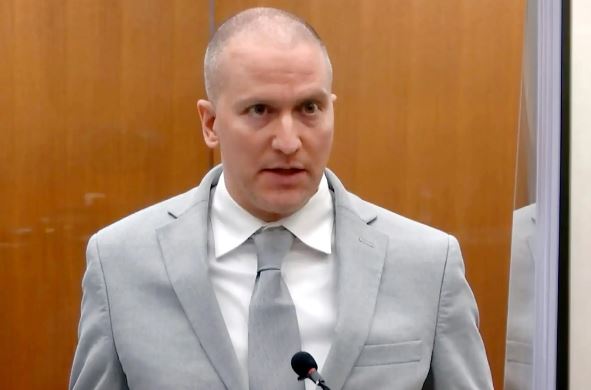Derek Chauvin, the former Minneapolis police officer convicted of murdering George Floyd in 2020, faced a violent incident on Friday when he was reportedly stabbed at a federal prison in Tucson, Arizona. Two sources with knowledge of the situation revealed that Chauvin was the victim of the stabbing.
The Federal Bureau of Prisons confirmed that an inmate at the Tucson prison was stabbed at 12:30 p.m. local time, but the agency’s statement did not explicitly identify Chauvin, 47, by name. Fortunately, no other inmates or prison staff were harmed, and the situation was swiftly contained.
Emergency medical technicians administered lifesaving measures before transporting the injured inmate to a local hospital for further treatment and evaluation. The specific details about Chauvin’s condition were not immediately available, but one source indicated that he survived the attack.
Chauvin was serving a sentence of just over two decades in federal prison following his conviction on state murder charges and a federal charge of violating George Floyd’s constitutional rights. Floyd’s death, resulting from Chauvin kneeling on his neck for over nine minutes, sparked widespread protests against police violence and racism, becoming a focal point for calls for justice.
Chauvin’s lawyers have not provided comments on the recent incident, and the circumstances leading to the stabbing remain unclear. The former police officer had sought to appeal his conviction, but the Supreme Court rejected his efforts just this week.
As part of a plea deal in his federal case, Chauvin was permitted to serve his sentence in a federal prison, considered safer than a state prison. Prior to this arrangement, Chauvin had been in solitary confinement for 23 hours a day in a Minnesota state prison due to safety concerns.
This incident is not the first high-profile attack on a federal prisoner in recent years. Earlier this year, Larry Nassar, convicted of sexually abusing young gymnasts, was stabbed, and in 2018, James (Whitey) Bulger, the notorious mobster, was murdered in a West Virginia prison.
Chauvin’s stabbing comes at a time when the Federal Bureau of Prisons is grappling with a significant shortage of corrections officers, relying on alternative personnel like teachers, case managers, counselors, facilities workers, and secretaries to fill shifts. Approximately 21 percent of funded corrections officer positions were unfilled in September 2022, amounting to 4,293 vacant positions.
The killing of George Floyd led to a highly publicized trial in which Chauvin was convicted of second-degree murder in April 2021. Three other officers present at the scene were also later convicted of violating Floyd’s rights. Chauvin’s actions, captured on video by a bystander, triggered a global outcry against police brutality and systemic racism.
In April 2021, Chauvin was sentenced to 22 and a half years in state prison. A year later, he received an additional 21-year sentence in federal prison after pleading guilty to violating Floyd’s constitutional rights by using excess force under the color of law.
Chauvin’s mother, Carolyn Pawlenty, maintained his innocence at his sentencing, asserting that her son was wrongly depicted as racist and insisting that he was not guilty of murdering George Floyd. The violent incident at the federal prison adds a new chapter to the complex and controversial aftermath of Chauvin’s conviction, raising questions about the safety of high-profile inmates in the prison system.

